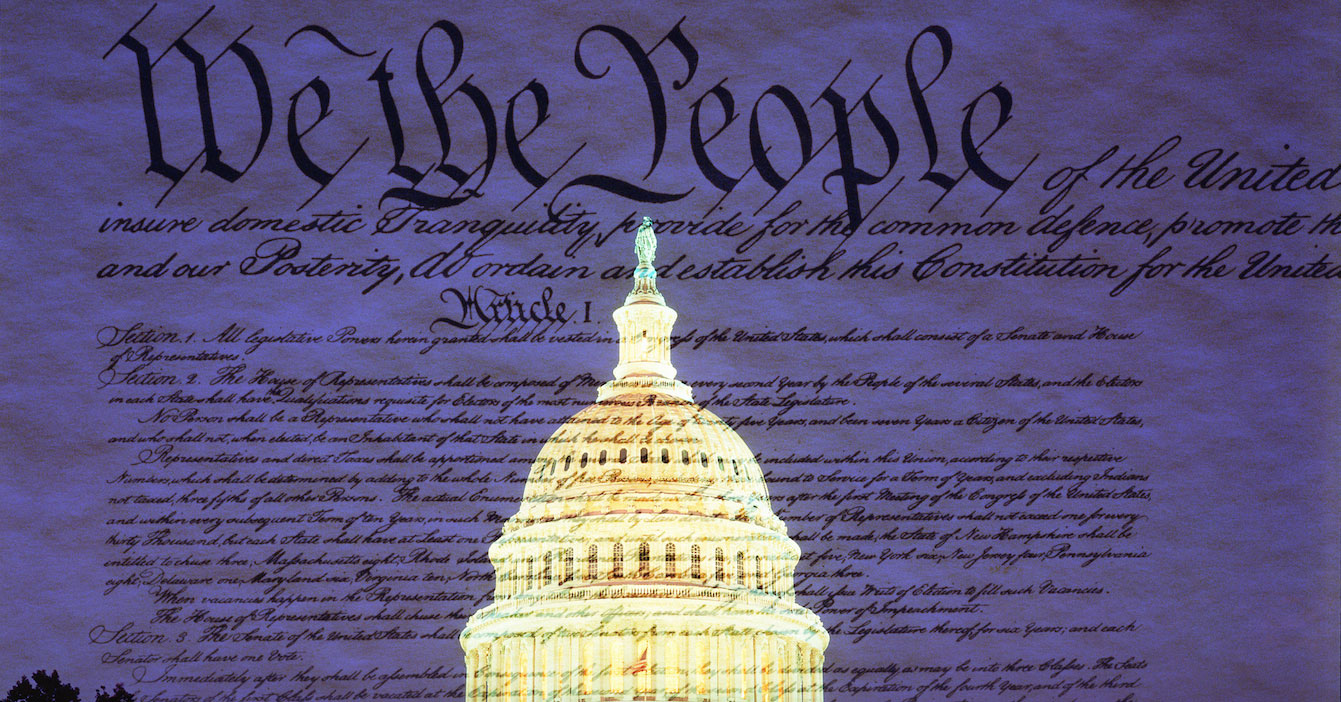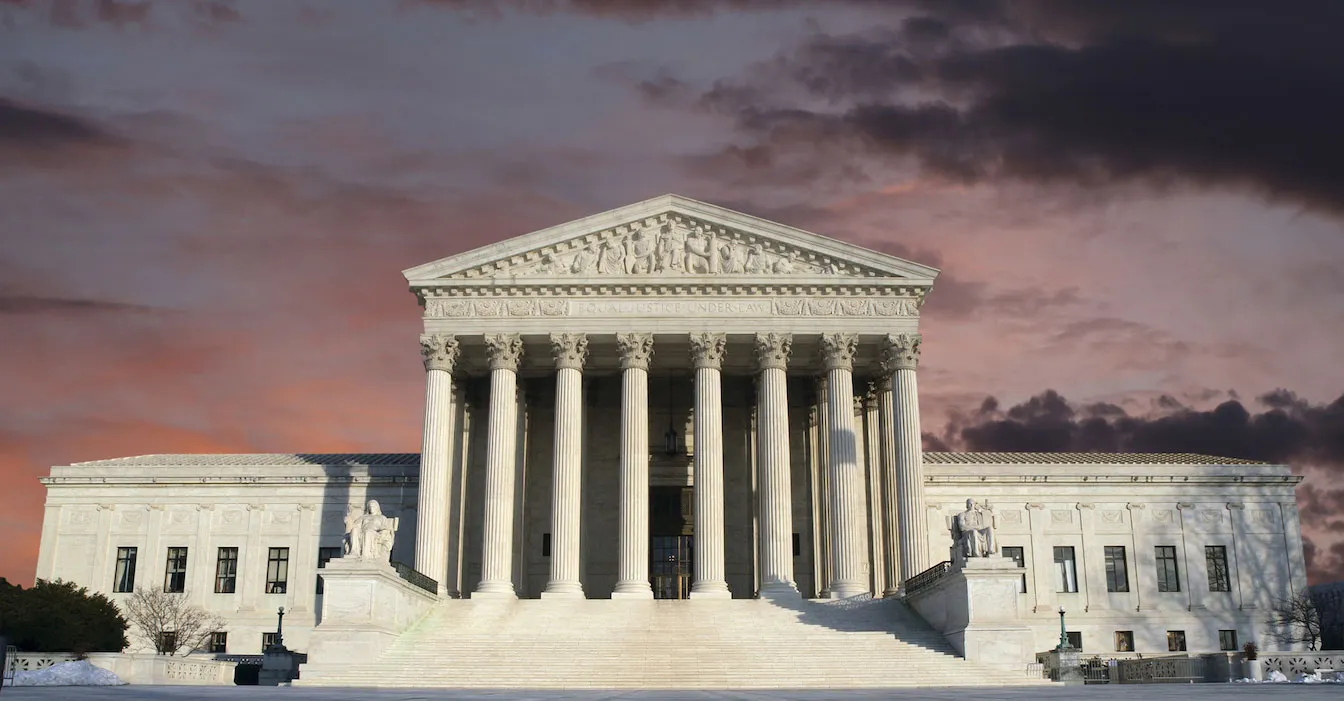It’s a question as old as the Republic itself, one with which the Constitution’s framers wrestled and that nearly destroyed the union less than a century later.
How much sovereignty can individual states retain without shredding the fabric of the country to which they each pledge allegiance?
The Constitution answered it with a delicate lattice of checks and balances while giving ultimate authority to federal law, a stance that President Abraham Lincoln underscored with military force when southern states attempted to secede in the 1860s.
Now, a Supreme Court whose public approval rating has dropped to 40 percent – the lowest since at least 2000, according to a Gallup poll from September 2021 – has agreed to address it again after Texas lawmakers flouted high court precedent to virtually ban abortions in the state with a law structured to frustrate judicial review.
Justices have scheduled oral arguments for Monday, Nov. 1, on the U.S. government’s request for an injunction blocking the Texas law, which delegates enforcement to private parties filing civil suits in state courts rather than to state officials whose actions might be more easily enjoined.
The Supreme Court limited its review, however, to the question of whether the United States has standing to obtain the injunction, which would block state judges, clerks of court and private citizens from enforcing Senate Bill 8.
A judiciary block is precisely what the law was designed to forestall, and an order that Texas Attorney General Ken Paxton and the measure’s supporters have steadfastly maintained the U.S. government lacks grounds for seeking.
BOXING OUT the Judiciary
“Texas has boxed out the judiciary from entertaining pre-enforcement challenges,” Jonathan Mitchell, the former Texas solicitor general who helped craft the law and represents a group of people planning to file lawsuits under S.B. 8, argued in a brief filed with the 5th U.S. Circuit Court of Appeals before the Supreme Court intervened.
Pushing the New Orleans-based appeals court to stay an injunction issued by U.S. District Judge Robert Pitman, Mitchell successfully dismissed the U.S. government’s argument that it was entitled to enjoin the Texas law because it undermines Constitutional supremacy, prohibiting abortions before the point allowed by the court’s 1973 decision in Roe v. Wade.
Roe, contested by abortion-rights opponents for nearly 50 years, held women have a constitutional right to the procedure until viability – the point at which a fetus can survive outside the womb, which generally occurs around six months into a pregnancy.
S.B. 8 prohibits abortions as soon as a fetal heartbeat can be detected, which can occur as early as six weeks of pregnancy.
Just two months ago, five of the Republican appointees on the Supreme Court, cited Texas’ “novel” enforcement scheme in declining to block the law before it took effect, sparking dissent from the three Democratic appointees as well as Chief Justice John Roberts.
Only 'opinions'
Attorney General Merrick Garland’s Justice Department then filed its own suit against the state writ large, arguing that the federal government had the right to protect its own authority as defined in the Constitution itself - something Texas was attacking by ignoring Roe.
Texas officials and their allies disagreed.
“The Supreme Court’s interpretations of the Constitution are not the Constitution itself – they are, after all, called opinions,” Mitchell, principal at Mitchell Law and a contributor at the Federalist Society, insisted to the 5th Circuit. “A state does not violate the Constitution by undermining a ‘right’ that is nowhere to be found in the document and that exists only as a concoction of judges who want to impose their ideology on the nation.”

The U.S. Justice Department says Texas' latest restrictions on abortion undermine federal supremacy guaranteed in the Constitution.
Should Texas’ ploy succeed, U.S. Solicitor General Brian Fletcher has said, other states will likely try it themselves, not only banning abortions but also undercutting Constitutional rights such as gun ownership and unlimited corporate campaign donations.
OATHBOUND?
Mitchell rejects that premise as well, maintaining that elected officials are bound by oath to “support and defend the Constitution.”
Passing a law “that undercuts a textual constitutional right is much harder to reconcile” with that promise, he told the 5th Circuit, an argument he repeated in a brief filed with the Supreme Court. Justices will hear arguments from Mitchell’s clients as well as the state itself on Nov. 1
No state is likely to attempt what Texas did with S.B. 8 because no other issue has generated as fierce an opposition, Mitchell argues. Such a statute would be unlikely to work, he said, if there were clear majority support on the court for the threatened right.
While Roe was handed down by a 7-2 majority, abortion-rights opponents believe the current court takes a more skeptical stance, in part due to three appointments by former President Donald Trump, who promised to support their cause.
Trump was able to make so many appointments in part because a Republican-dominated Senate refused to consider the nomination of Garland by then-President Barack Obama, a Democrat, when conservative Justice Antonin Scalia died in February 2016.
Then-Majority Leader Mitch McConnell said that with only seven months remaining before a presidential election, voters deserved to have a say in who would fill the vacant seat.
No such compunction bothered McConnell when liberal Justice Ruth Bader Ginsburg died less than two months before the 2020 election, however. He shepherded Trump’s nomination of Amy Coney Barrett to a 51-48 confirmation on Oct. 25. Trump lost his re-election battle nine days later.
One year afterward, Mitchell is confident enough in the Supreme Court’s stance toward Roe that he argues S.B. 8 is “heavy artillery” that Texas brought to bear against a decision that “this court is currently considering whether to overrule.”
Along with the Texas abortion case, the court has agreed to hear Mississippi’s petition in Dobbs v. Jackson Women’s Health Organization over a state law that bans abortions after 15 weeks except in medical emergencies. Arguments in the latter case are scheduled for December.
'MORALLY REPREHENSIBLE'
Along with oral arguments, justices considering the Texas law may refer to an array of amicus briefs backing each side.
The Justice Department’s arguments have drawn support from groups including a coalition of 23 states from California to New York and Massachusetts, the Texas Medical Association, the Constitutional Accountability Centers and constitutional law scholars including Leah Litman and Erwin Chemerinsky.
Texas’ argument has been bolstered by briefs from an alliance of 21 states including South Carolina, Georgia, Florida and Kentucky, a group of 410 Texas women who say they were injured by abortion, and the Life Legal Defense Foundation
States have “always” had the ability to do what Texas did but have not “because of the respect and latitude that this court receives from the political branches,” Mitchell said. “One should expect the states to enact S.B. 8-like statutes only in rare and extraordinary circumstances, and only when they believe that this court is acting in a manner that is both lawless and morally reprehensible.”


